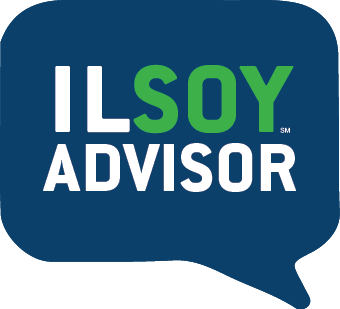ILSOYADVISOR POST
WEBINAR: The Urgency of Estate Planning Today: How to Capture Available Benefits Before They’re Gone
If it’s been a while since you’ve looked at your estate plan, or if you need to establish one, there’s no better—or more pressing—time than now. Change is in the air surrounding estate planning benefits, and it’s no longer a matter of “if” but “when.” This webinar will provide insights on the importance of estate and tax strategy right now, highlights surrounding the latest predictions and expectations, as well as ways to position your plan to capture the greatest benefits.
Presenter: Kevin Bearley, Principal Tax Attorney K·Coe Isom
Kevin Bearley is a tax attorney who partners with business owners to create sophisticated income and tax solutions that include structuring organizations, transitioning businesses and maximizing tax benefits at present and into the future. Kevin routinely represents and resolves IRS appeals cases with an excellent track record of success. A detailed researcher, he creates solid strategies to protect business assets and limit risk. Kevin collaborates with both K·Coe Isom and external resources to develop innovative solutions and employ creative tax techniques. His expertise resides in estate planning for family businesses, with a focus in agriculture.
- Founding Fathers wanted a meritocritous estate system versus an inheritance system
- President Lincoln enacted a type of estate tax system during the Civil War to help pay for the war, but nothing permanent
- Current estate tax and income tax systems came into existence in World War I to help pay for the war
- Estate tax exemption was $50,000 per person and taxed at 55%
- Stayed at this level for the next 60 years
- Nobody paid estate tax because could gift an unlimited amount of assets to heirs instead of paying
- Estate tax exemption was $50,000 per person and taxed at 55%
- In 1976, President Carter married the estate and gift system and doubled exemption to $100,000
- Could gift assets away up to $100,000 or die with assets before paying tax at 55%
- In the 1980s, President Reagan started ramping up the exemption amount, which continued into the 1990s up to $650,000 per person
- In the 2000s, death taxes became the new symbol for estate tax
- President Bush wanted to repeal them but didn’t because taxes needed to be paid to repair damage from Hurricane Katrina
- In 2008, estate tax law was set up to $3.5 million in 2009, $0 in 2010, and then $1 million in 2011
- President Obama wanted to avoid filibuster on healthcare bill, compromised with Republicans and settled for a $5 million estate tax exemption per person and tax rate of 45%
- In 2017, President Trump doubled the estate tax exemption amount to $10 million, $11.7 million today with inflation
- Best the estate tax has ever been, but was added to the budget reconciliation
- Exemption will roll back to 2010-2011 levels on January 1, 2026, around $6 million with inflation with a 45% tax rate
- Best the estate tax has ever been, but was added to the budget reconciliation
- Sensible Taxation and Equity Promotion (STEP) legislation was drafted in March 2021
- Allows estate tax exemption of $1 million and lays out a plan similar to Canadian estate tax legislation
- Divorces gift tax system from estate tax system; can only give $100,000 of asset value in lifetime
- Proposes raising capital gains rates to 43% to 45%
- Doesn’t specify if assets would be treated equally, such as equipment, inventory, etc.
- Restrictive succession planning opportunities
- Need to have carve out for small or family-owned businesses
- Odds are low that this plan will pass
- President Biden gave direction to IRS that is similar to STEP legislation
- President Biden’s proposal does include qualified family-owned businesses and would be enacted on January 1, 2022
- Last three administrations have compromised and enacted legislation between Christmas and New Years
- Best things to do:
- Have a plan, otherwise a judge, attorney or IRS will make one for you
- Communicate your plan to your kids
- Separate operations from the land base
- Don’t want heirs not on the farm making decisions for heirs on the farm
- Put land base in an entity that can still be discounted
- Use a trust environment
- Everyone with a family business should have a revocable trust because you can change it
- This lays out to family what you want done with assets and how you want debts paid
- Intentionally defective irrevocable trust
- Trust where you control it and don’t pay estate tax, allows trust to grow
- Everyone with a family business should have a revocable trust because you can change it
- Have a buy-sell agreement and update ever 10 years, otherwise attorneys and judges make that determination
- Tells people how to get out and get into the family business
- Best way to get limited non-voting interests into trust is to gift a small amount
- File a gift tax return now with a small amount of the non-voting interests and get that statute running so the IRS can’t audit estate tax return when you pass
- Then sell the non-voting units into the trust, which isn’t a recognizable event for income tax purposes
- File a gift tax return now with a small amount of the non-voting interests and get that statute running so the IRS can’t audit estate tax return when you pass





Comments
Add new comment